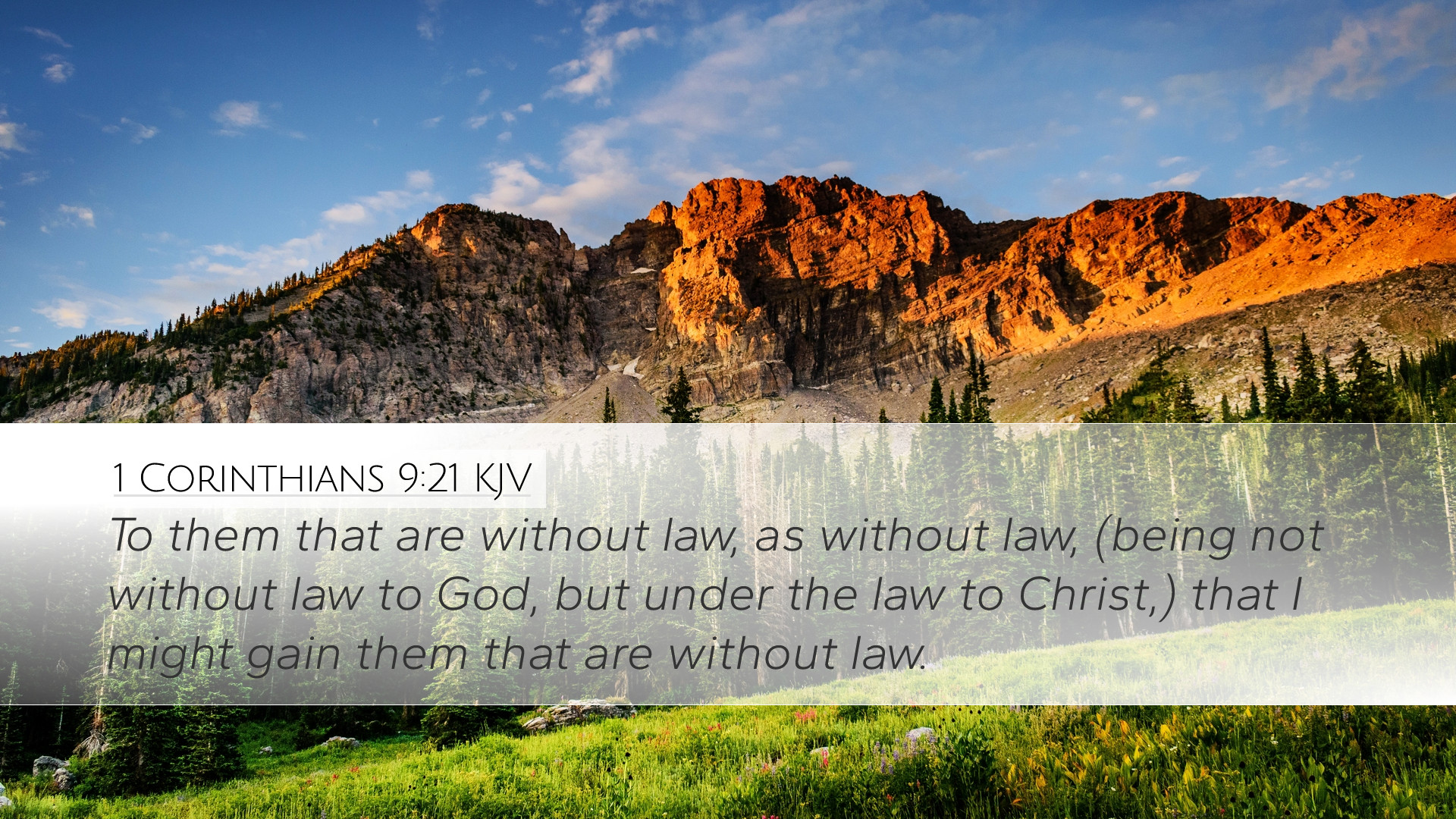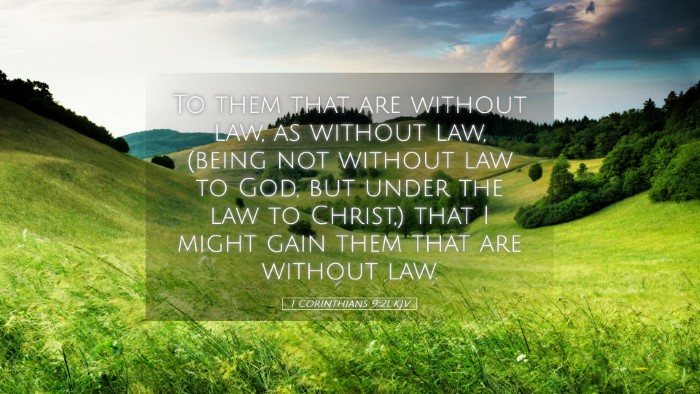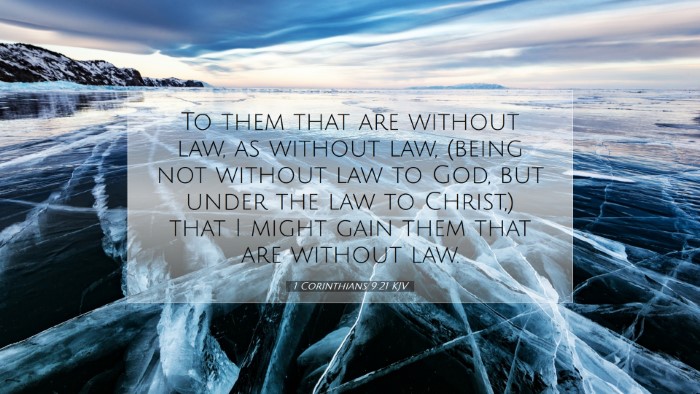Old Testament
Genesis Exodus Leviticus Numbers Deuteronomy Joshua Judges Ruth 1 Samuel 2 Samuel 1 Kings 2 Kings 1 Chronicles 2 Chronicles Ezra Nehemiah Esther Job Psalms Proverbs Ecclesiastes Song of Solomon Isaiah Jeremiah Lamentations Ezekiel Daniel Hosea Joel Amos Obadiah Jonah Micah Nahum Habakkuk Zephaniah Haggai Zechariah MalachiVerse
1 Corinthians 9:1 1 Corinthians 9:2 1 Corinthians 9:3 1 Corinthians 9:4 1 Corinthians 9:5 1 Corinthians 9:6 1 Corinthians 9:7 1 Corinthians 9:8 1 Corinthians 9:9 1 Corinthians 9:10 1 Corinthians 9:11 1 Corinthians 9:12 1 Corinthians 9:13 1 Corinthians 9:14 1 Corinthians 9:15 1 Corinthians 9:16 1 Corinthians 9:17 1 Corinthians 9:18 1 Corinthians 9:19 1 Corinthians 9:20 1 Corinthians 9:21 1 Corinthians 9:22 1 Corinthians 9:23 1 Corinthians 9:24 1 Corinthians 9:25 1 Corinthians 9:26 1 Corinthians 9:27

